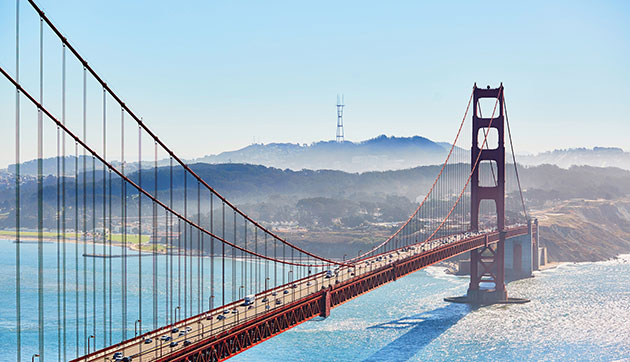If you build it, they will come. The new jobs, that is.
Those are essentially the parameters of a recent deal inked between California and General Motors (GM), in which the car manufacturer promised to pour $14 million into the construction of a new autonomous vehicle plant in San Francisco.
The site will serve as an expansion of operations for Cruise Automation, the self-driving technology startup GM acquired last year. Primarily serving as a testing and research facility, the venture will bring just over 1,100 new jobs to the city, GM declared.
In return, the Golden State has offered GM a chance to save plenty of green. Specifically, the move makes the manufacturing giant eligible for $8 million in tax credits, thanks to the California Competes Program, an initiative set up to facilitate and foster growth in the state’s business community.
General Motors promised the jobs created would be high-skilled and high-paying, with a minimum salary of $59,000 and an average take-home pay of $116,000.
In its contract with the state’s Office of Business and Economic Development—which oversees the California Competes Program—General Motors promised the jobs created would be high-skilled and high-paying, with a minimum salary of $59,000 and an average take-home pay of $116,000.
But the premium the carmaker is paying on new employees could prove a good investment for the company, which has been slow to break into the competitive world of driver-free technology.
The move plants GM directly on the autonomous vehicle industry’s doorstep. Nearly every big company currently testing self-driving cars in California is stationed in San Francisco—not to mention the city’s rich pool of tech talent and the existing cache of autonomous vehicle experts there.
The overture also strengthens California’s newly-reestablished stance as the leader of the self-driving car industry, following a swift and substantial change to the state’s regulations on testing autonomous autos.
General Motors purchased Cruise Automation early last year, for a rumored sum of over $1 billion. The startup, which was already based in San Francisco, gained notoriety for the creation of a suite of tools that allowed some car owners to convert their autos to autonomous vehicles in highway driving situations.
While the original “kit” was only tested on certain Audi models, GM likely has broader plans for the technology. Its acquisition of Cruise Automation came shortly after the manufacturing bulwark announced it would create an engineering team dedicated solely to self-driving development.
GM has been busy making moves behind the scenes to catch up to competitors in the race for self-driving prominence, including a $500 million partnership with rideshare giant Lyft.
The automaker has also been busy making moves behind the scenes to help it catch up to competitors in the race for self-driving prominence, including the 2017 rollout of the semi-autonomous Super Cruise and a $500 million partnership with rideshare giant Lyft.
Much like the contract Uber signed with Volvo last year, the partnership with Lyft allows the ridehail company to dispatch any self-driving vehicles GM may build in the future.
And with plenty of space at the new San Francisco site—a former brownfield that GM will fully rehabilitate—the automaker may just bring some of its storied manufacturing might out West, as well.
